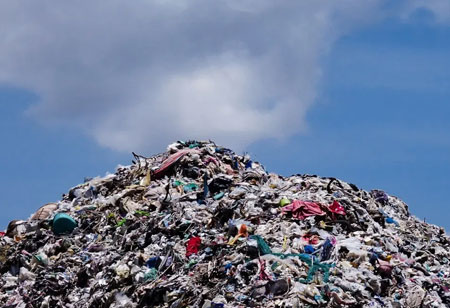THANK YOU FOR SUBSCRIBING
Global Plastic Waste Management Crisis Solved by Conversion Process
“We’ve proven we can make high-quality activated carbon from plastics, and we also generate a lot of heat at the same time, more so than with agricultural waste,” Dr. Dunnigan said.

By
Apac CIOOutlook | Monday, November 25, 2019
Stay ahead of the industry with exclusive feature stories on the top companies, expert insights and the latest news delivered straight to your inbox. Subscribe today.
Due to the increasingly strict environmental legislation, the manufacturing of activated carbon from conventional means is still a staring challenge. ByGen introduces a method to tackle both plastic wastes management and the production of activated carbon with its new conversion process
FREMONT, CA: ByGen, a South Australian company, has widened its forte from agricultural wastes to include plastics with activated carbon. it has successfully generated several varieties of plastics, contaminated plastics waste being one among them.
ByGen co-founder and CEO Lewis Dunnigan believe that the breakthrough he has achieved along with founder Ben Morton is a one-of-a-kind conversion process in the entire world.
The company based in Adelaide is now hiring an industry partner from the plastics sector to develop the technology in much depth and introduce it to the market.
“There’s a big problem with contaminated plastics globally, and we think making activated carbon from it could be a good way to remedy that,” Dr. Dunnigan said.
“Because we’re both scientists, we noticed some fundamental similarities between agricultural wastes and plastics.”
“Agricultural waste has a high carbon content, as does plastic, so the idea occurred to us ‘why not make activated carbon out of plastic?’”
Activated carbon has a wide array of applications in an industrial scenario, from purifying liquids like drinking water, food, and beverage processing, odor removal, contaminated soil remediation, and gold processing. Activated carbon is conventionally manufactured from coal, hardwood, coconut shells and has a market cap of about A$2000 per tonne.
“We’ve proven we can make high-quality activated carbon from plastics, and we also generate a lot of heat at the same time, more so than with agricultural waste,” Dr. Dunnigan said.
“Heat can be a valuable bi-product for industries like brick making, cement production, and industrial drying processes. One tonne of plastic generates 3-5MW of heat, which is quite a lot, enough that this could even be converted to electricity or exported to the grid.”
The campaign to raise about A$2.5 million for building a full-scale plant by the company is initiated. ByGen’s capability of producing activated carbon in industrial quantities from agricultural waste will be funded from the raised capital.
“During our Ph.D.’s, we came up with a meager cost, low energy way of making activated carbon, and then we realized there was a market for it, so we’ve commercialized the technology we developed,” the ByGen CEO said.
“Traditionally, you have to make it at about 1000 degrees using steam or harsh chemicals. We felt like these energy-intensive processes, often used in developing countries with non-renewable feedstocks, weren’t sustainable, so we tried lots of different Australian agricultural wastes and identified which ones worked best.”
The global activated carbon market has a CAGR of nine percent increase, and Australia is the net importer. The growth is mainly due to the increasingly strict environmental legislation. Dr. Dunnigan states that the plastics conversion process is also used for agricultural wastes as well and would require different industry partners.
“We want to embark on a collaborative project with a partner that can see the value in turning waste plastics into something that can be worth $2000 a tonne.
“The great thing about our process is that it works with mixed plastic streams, and these types of contaminated plastics are a problem not only in Australia but also around the world.”
“One of the really good things about being an environmental tech company is it is an issue that communities are increasingly aware of, and the long-term trend is towards greater sustainability. We’re entering the industry at the right time to, not only help address the growing worldwide contaminated plastics problem, but also showcase technology developed right here in South Australia.”
Check out: Top EHS Solution Companies





